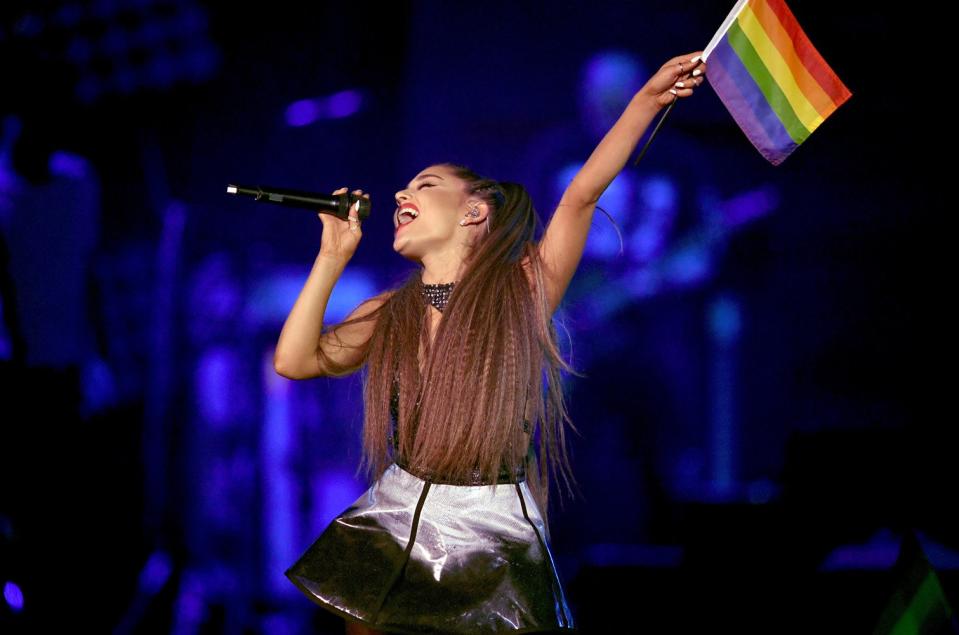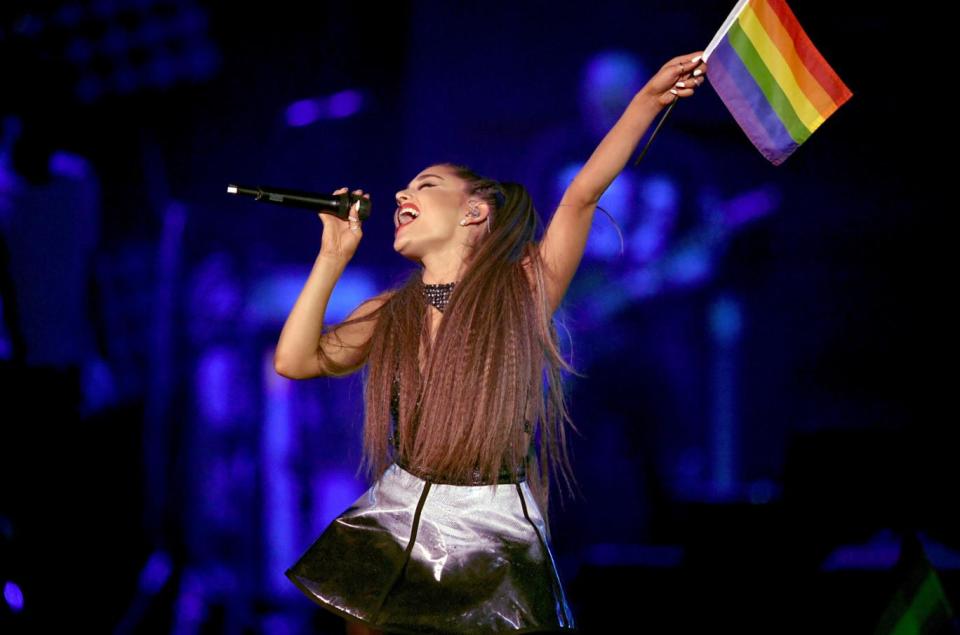Sweetener: How Ariana Grande became the most important artist of 2018

Ariana Grande has been announced as the latest megastar to appear on Carpool Karaoke. Four years ago, she was still appearing in the Nickelodeon show Sam & Cat.
Inbetween, she’s released three number one albums and embarked on successive arena tours. Her remarkable rise has given rise to a passionate fanbase (known as “Arianators”), but her career is remarkable for more than just her music.
While she’s established herself as a household name with hits like Dangerous Woman, Side To Side And God Is a Woman, it's her off-stage actions have helped make her one of the most culturally significant artists working in 2018.
Her positive attitudes towards LGBT rights and feminism, as well as her stoic response to the tragic Manchester Arena attacks in 2017 and her involvement with the One Love benefit concert are all things worth celebrating.
Her latest album, Sweetener, looks set to cement her status as one of the most popular artists making music in 2018 too, but it hasn’t always been this way for Grande.

During the early days of her musical career she was accused of ‘diva-like’ behaviour during fan meet and greets in 2014 in a blog post.
However, the biggest and most bizarre scandal of Grande’s young career came in 2015 when security camera footage captured her licking display doughnuts and shouting “I hate America” in a Californian bakery.
Where others might have withdrawn and hoped the controversy would blow over, Grande publicly apologised and later owned up to the mistake on a 2016 episode of Saturday Night Live, joking: "A lot of kid stars end up doing drugs, or in jail, or pregnant, or get caught looking at a doughnut they didn't pay for."
More often, though, her actions have been met with wide-spread praise. Her well-publicised views on feminism, for example, were well received by her contemporaries back in 2015.
It came after Grande wrote a feminist essay, hitting out at misogyny and double-standards in the industry, leading Taylor Swift to write, “I’m so proud of you, always. But especially today,” on Twitter at the time.
Grande has also been praised for her support of LGBT rights over recent times and was hailed a "gay icon" by Billboard in 2017.
While the fact that Grande doesn’t identify as LGBT caused Twitter users to criticise the tag at the time, Grande has long been vocal about the issue of gay rights.
Having been raised as part of the religious family, she previously revealed how she'd left the church due to attitudes towards homosexuality, inspired by the experiences of her gay step-brother and Celebrity Big Brother star Frankie Grande.
“It’s outrageous to me when I see people hate on someone because of their sexuality,” she said during an interview with American Horror Story and Glee creator Ryan Murphy for V magazine in 2015.
“I hate the intolerance. I hate the judgment. I hate it so much. Most of my favourite people in my life are gay.”
Her notable appearances on US talk shows have also helped to inform perceptions of her music career.
For many casual observers, her musical impressions on a 2015 episode of the Tonight Show starring Jimmy Fallon were a standout moment. The viral clip racked up over 118m views and highlighted her vocal talents to a wider audience than one of her singles ever could.
Her flawless, unerringly accurate impressions of Britney Spears, Christina Aguilera and Celine Dion converted a new legion of admirers pretty much overnight and proved that this one-time children's TV star was the real deal.
Sadly though, Grande was subjected to the most tragic of circumstances in 2017: the devastating Manchester Arena attack, which took place after her show at the venue on May 22, saw 22 people lose their lives and 139 more injured.
Putting aside unimaginable emotional trauma, Grande visited victims in hospital, sent emotional messages to fans and helped to organise and perform at the One Love Manchester tribute concert in the weeks that followed.
She was rightly praised around the world and her deeply emotive performance of Somewhere Over the Rainbow proved to be one of the concert's most abiding moments. Incredibly, the event went on to raise $23m to help victims.
The grace she embodied during that difficult time showed her cultural and social significance more than her music ever could.
Grande later channeled her experiences in the single No More Tears Left To Cry. The lyrics are an exploration of grief (“Right now, I'm in a state of mind I wanna be in all the time. Ain't got no tears left to cry”), which are ultimately filled with an overriding sense of hope, not despair.
15 months after the events of May 2017, she has come to mean far more than your typical pop star among fans all over the world.
Her new album is one of the most high-profile releases of 2018, but Grande’s embodiment of positivity, equality and stoicism away from the stage have always proved to be just as influential as her music.

 Yahoo News
Yahoo News 